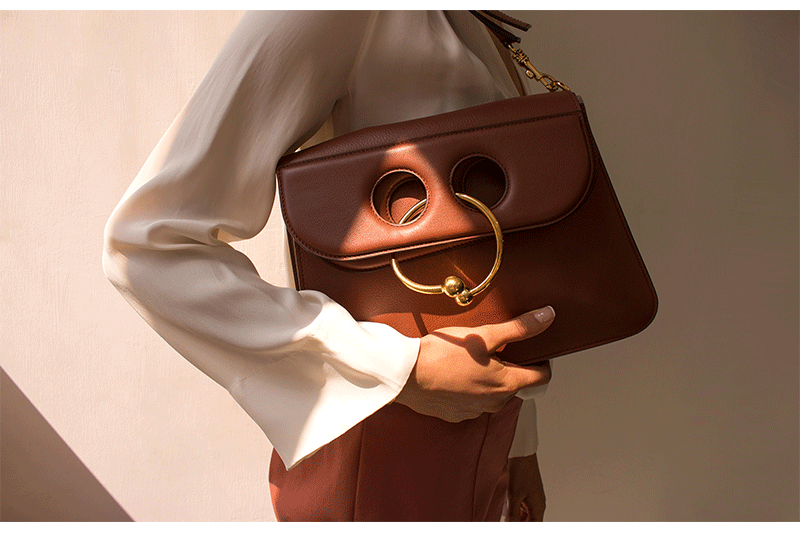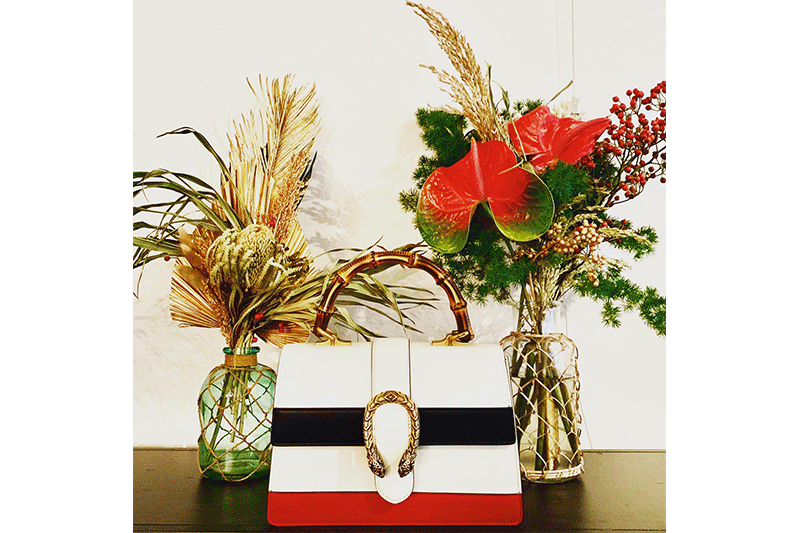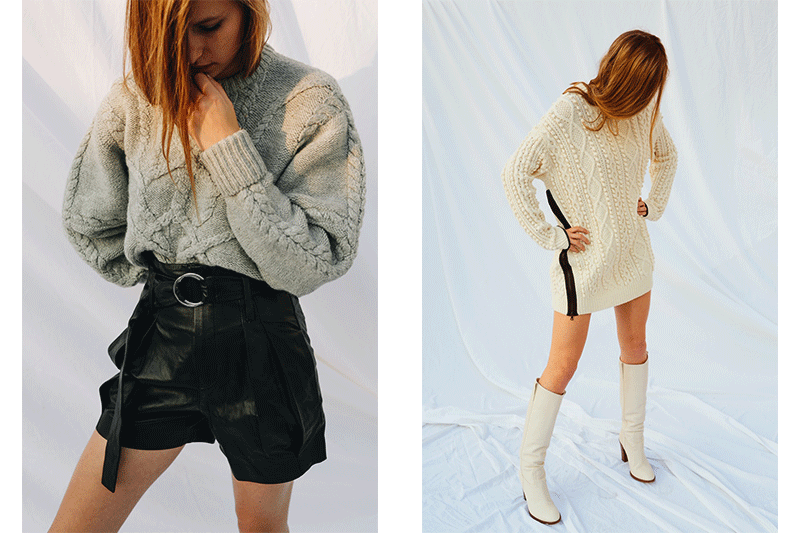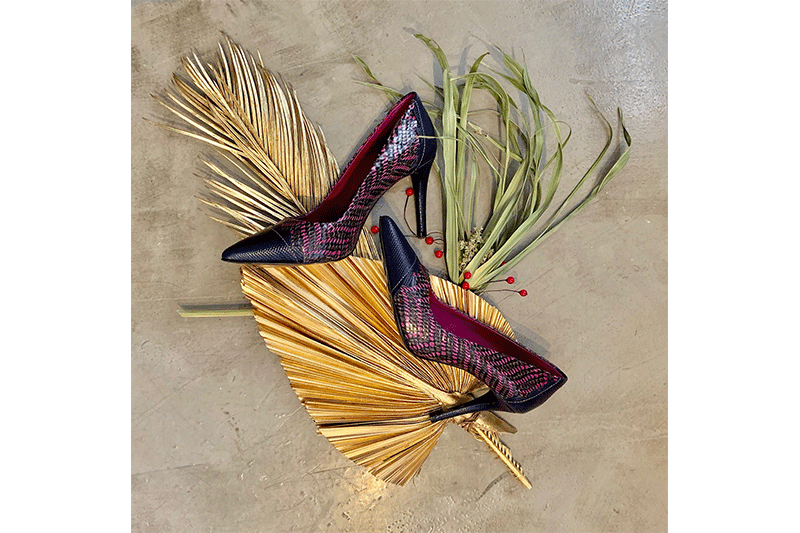Horrified by the amount of textile waste inflicted by the fashion industry, Sarah Fung set out to redefine the consumption of luxury fashion for the benefit of both the earth and your budget with her fashion resale brand HULA.
Sarah Fung launched HULA in 2016 as an online website selling pre-owned luxury garments at an affordable price – and up to 95% off retail. The name HULA refers to a hula hoop, symbolising the continuous cycle of an item as it gets passed along. In a society where women are conditioned to covet high-end goods, HULA allows them to bask in its stash of over 5,000 designer items and 750 brands – think Vera Wang cocktail dresses, Christian Dior pumps, Prada gloves, and Chanel bags – guilt-free, and in a sustainability-conscious way. Based in Hong Kong, we sat down with Sarah at the Hive Sheung Wan to find out how HULA aims to redefine her city’s fashion scene and the concept of luxury beyond.

Always a savvy creative, Sarah studied jewellery design at Central St. Martins College in London before establishing her own lingerie and swim label in the UK. After she ended her business, she embarked on an almost decade-long stint at Lane Crawford in Hong Kong, learning the backend of luxury retail in Hong Kong including what drives a product to sell. Towards the end of her time there, she realised the industry reeked of textile waste. “The speed that designers were producing quality clothing, whilst retail stores would then discard to the sale bin after a few months shelf-life started to give me a sickening feeling.”

Her newfound view coupled with her desire to resell her own luxury products in Hong Kong manifested into something bigger when she had no luck finding sites where she could resell them. She left her job at Lane Crawford in 2015 to conceive a site where people could recycle their designer wear, and after nine months of conceptualising and collecting products, HULA was launched in 2016. Revealing one of the barriers to entry, Sarah says, “We didn’t exist, so we were literally asking people to entrust us with their precious Chanel pieces when they didn’t even know who we are.” Working with her long-held contacts in the industry, Sarah circumvented this issue by sourcing clothes initially from friends, with help from their own friends, and managed to collect 1,000 products to launch her site.

To ensure the quality and authenticity of the products, HULA sellers are by invite only, and most within the fashion industry, an almost endless resource of overstuffed closets and redundant designer wear. Potential new sellers are also welcome to shoot HULA an email to see if their wares fit the bill. Having already sifted through images of all proposed items, once the pieces are sent to HULA’s office, they undergo a second inspection for cleanliness, authenticity and style – with trendy pieces and basics usually making the cut. “To be honest, I’m still never really sure why some of the things I think would never sell, sell and vice versa. My audience has quite a large range, from 20 to 60 years old. I have to cater to quite a lot of different styles, so at the end of the day, it’s not so clear cut,” explains Sarah. The pieces that are kept will be listed on an excel sheet with the description and price for the seller to approve – with 35% going to HULA – before they’re photographed and uploaded onto the website. Often, they get sold at HULA’s walk-in showroom before they go up on the website.

Despite HULA’s appointment-only showroom not being advertised extensively, it has proved a big draw, especially for corporate women and busy mothers. Even those who don’t have much time to shop sometimes spend three hours there. “I think it’s tough to do just an online business nowadays,” Sarah admits. Thus, she will be opening a 4,000-square-foot warehouse space by mid-March – the very first warehouse for preloved items in Hong Kong. “We didn’t really expect our business to be offline when we first started, but we realised the offline and online experience together is actually the way forward,” she says. “I think you need to give people the experience. People want the excitement that comes along with shopping. We hope to provide that, which is why we do so well at our pop-up events.”
In the first two years of HULA, Sarah spent time hosting panels and popups to re-educate Hong Kongers about secondhand clothing. Last May, she threw a ‘Get Lucky’ event to spin the negative connotation of bad spirits lingering in second-hand clothing by selling the pre-owned clothes of beautiful influencers with tens of thousands of followers who led amazing lives. “Fortunately, sustainability and preloved products have seen a very big rise, especially in the last year,” Sarah shares. “The good thing about Hong Kong and Asia is when there’s a trend, it catches on.”
Moving forward, she will try to host monthly events for panel discussions, interviews, and workshops to keep the sustainability conversation going at HULA’s upcoming warehouse space. “We’re trying to build out a community, and we’re hoping that’s going to grow a lot more once we have that space,” she explains, determined for ethical brands and companies like HULA to help the fashion industry. “HULA is able to create that circular economy and let people buy and sell through the site and continuously use products. It’s a very smart way of shopping. Guilt-free, and kind to the planet.”
Related Articles
7 Essential Sustainable Fashion Labels in APAC to Know
7 Sustainable E-Commerce Platforms on the Rise in APAC
Christina Dean: The Woman Leading a Global Movement in Fashion Sustainability




